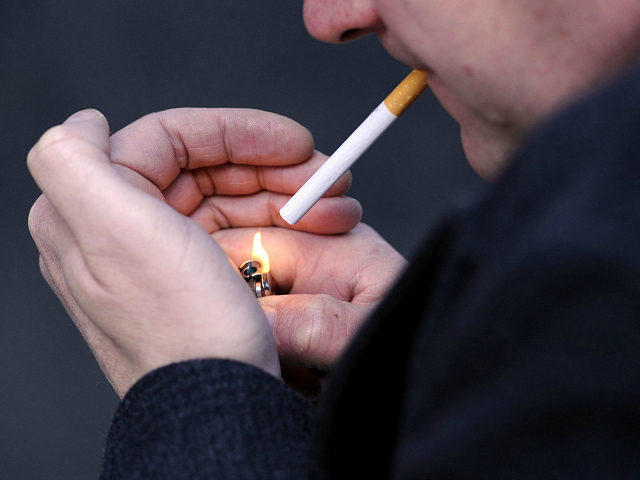Britain’s socialised National Health Service (NHS) is planning to ban obese patients and smokers from having surgery unless they lose weight or kick the habit.
Under plans drawn up in Hertfordshire, the NHS say obese patients “will not get non-urgent surgery until they reduce their weight” or their circumstances are exceptional.
The new criteria insist smokers will only be referred for operations if they have quit smoking for at least eight weeks and will be forced to take breathalyser tests before their referral.
The plans will also see cuts in IVF provision and provision of medicines, causing concern the wealthy will simply pay for treatments while those on lower incomes will simply have to go without, The Telegraph reports.
A spokesman for the Royal College of Surgeons told the paper an “urgent rethink” of policies was needed, which he said was “discriminatory” and went against the fundamental principles of the NHS.
Despite the widespread assumption that smokers cost the taxpayer money, studies have found they might actually save expenditure as they die younger and require less expensive care and treatment in their old age. Smokers also pay a huge amount of tax on their cigarettes.
A 2008 study in the PLOS Medicine Journal concluded: “At older ages, smokers incurred higher costs. Because of differences in life expectancy, however, lifetime health expenditure was highest among healthy-living people and lowest for smokers.”
Joyce Robins, from Patient Concern, said: “This is absolutely disgraceful – we all pay our taxes, and the NHS should be there when we need it; we did not agree to a two-tier system.”
Other critics used a ‘slippery-slope’ argument to claim the ban could see other groups being persecuted by the NHS later in time.
The Royal College of Surgeons also said controversial criteria, drawn up by clinical commissioning groups (CCGs) in Hertfordshire, might mean patients are refused a referral without seeing the specialist who should take such decisions.
Ian Eardley, Senior Vice President, said: “Singling out patients in this way goes against the principles of the NHS. This goes against clinical guidance and leaves patients waiting long periods of time in pain and discomfort.
“It can even lead to worse outcomes following surgery in some cases. There is simply no justification for these policies, and we urge all clinical commissioning groups [CCGs] to urgently reverse these discriminatory measures.”
However, East and North Hertfordshire CCG and Herts Valleys said they hope to encourage people “to take more responsibility for their own health and wellbeing, wherever possible, freeing up limited NHS resources for priority treatment”.
They continued: “This policy is designed to improve patient safety and outcomes, both during and immediately after non-urgent surgery.
“No financial savings are expected as a result of these measures. We do, however, hope to improve the long-term health of our residents through the targeted stop-smoking and weight-loss support on offer to patients.
“In exceptional circumstances, clinicians will allow surgery to go ahead even if the smoking and weight loss criteria are not met. Exceptions would be made when waiting for surgery would be more harmful for the patient.”

COMMENTS
Please let us know if you're having issues with commenting.